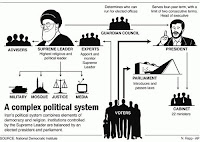Most Corrupt U.S .Administrations

President Ulysses S. Grant (1869-1877) He was, as the symbol of Union victory during the Civil War, their logical candidate for President in 1868. When he was elected, the American people hoped for an end to turmoil. Grant provided neither vigor nor reform. Looking to Congress for direction, he seemed bewildered. One visitor to the White House noted "a puzzled pathos, as of a man with a problem before him of which he does not understand the terms." As money and land grants were given to railroad companies in the West, it was discovered that members of Congress were bribed to vote in the interests of the Union Pacific Railroad. In the Whiskey Ring Scandal, a group of distillers and tax officers defrauded the U.S. Treasury out of revenue tax on whiskey. Grant was not found personally responsible in either scandal, but lost support by appointing people who turned out to be dishonest, and continuing to back them after their dishonesty was revealed.
After retiring from the Presidency, Grant became a partner in a financial firm, which went bankrupt. About that time he learned that he had cancer of the throat. He started writing his recollections to pay off his debts and provide for his family, racing against death to produce a memoir that ultimately earned nearly $450,000. Soon after completing the last page, in 1885, he died.

President Warren Harding (1921-1923) He was a popular President for an America tired of fighting the First World War. The highest tariffs in history were passed during his administration, and an immigration restriction law. In one of his speeches.. "America's present need is not heroics, but healing; not nostrums, but normalcy; not revolution, but restoration; not agitation, but adjustment; not surgery, but serenity; not the dramatic, but the dispassionate; not experiment, but equipoise; not submergence in internationality, but sustainment in triumphant nationality...." somebody called his speech "an army of pompous phrases moving across the landscape in search of an idea." The Teapot Dome Scandal involved Harding’s Secretary of the Interior, Albert Fall, who convinced the Secretary of the Navy to transfer naval oil reserves to the control of the Interior Department. Harding signed the executive order for the transfer. Fall then leased oil drilling rights in the Elk Hills, CA, and Teapot Dome, WY, reserves to oil men, and received Liberty Bonds and large “loans” in exchange. Fall resigned from the cabinet and was later convicted for his role in the affair, serving nine months in prison.
The Harding administration saw much scandal for its 2 ½ years. The President died mysteriously in San Francisco after contracting influenza or a heart attack. His wife returned immediately to Washington, D.C., and burned all of his papers.

President Richard M. Nixon (1969-1974) He was the first American President to resign, as his role was discovered in covering up a burglary. A break-in at the offices of the Democratic National Committee during the 1972 campaign. The break-in was traced to officials of the Committee to Re-elect the President. A number of administration officials resigned; some were later convicted of offenses connected with efforts to cover up the affair. Nixon denied any personal involvement, but the courts forced him to yield tape recordings which indicated that he had, in fact, tried to divert the investigation.
Three of these recordings documented Nixon’s personal role in the Watergate cover-up.
After resigning, Nixon, freed from the cares of the White House and the prospect of criminal prosecution, worked to win back respect on the world stage as an elder statesman, and succeeded. His funeral in 1994 was attended by all five living Presidents--Ford, Carter, Reagan, Bush Sr., and Clinton.

George W. Bush (2001-2009) He came to office through a Supreme Court decision following a contested plurality of 537 votes in Florida, and his defeat by over half a million votes in the popular election. Most Americans know how narrow the vote was in Florida, but not why. There are so many scandals and indications of wrong doings on every aspect of this mans Presidency that we need several chapters to list them, but we try only to name a few important ones to refresh your memories…1/- purging out almost 60,000 Democratic voters in Florida (ostensibly for being felons) by his Brother a few weeks before the Presidential election. 2/- He spent a greater percentage of his time on vacation than any President in American history..3/- Hurricane Katrina….4/- Systematic weakening of America's environmental laws 5/- WMD claims and the Iraq invasion ..6/- Bankrupting of the U.S. Treasury 7/- The arrest of a number of White House appointees for assorted crimes..8/- Torture of detainees……etc,etc, etc….
Historians will likely judge the Bush scandals as far more extensive than any that disgraced Grant, Harding, Nixon, or any other American president, due to their sheer scale. He ranks 39th out of 43 presidents in the Siena Institutes's survey of 238 presidential scholars released in July, 2010. (Excerpts from R.C. Keating)



Comments
Surely not because he never was actually elected ?!! as you claim